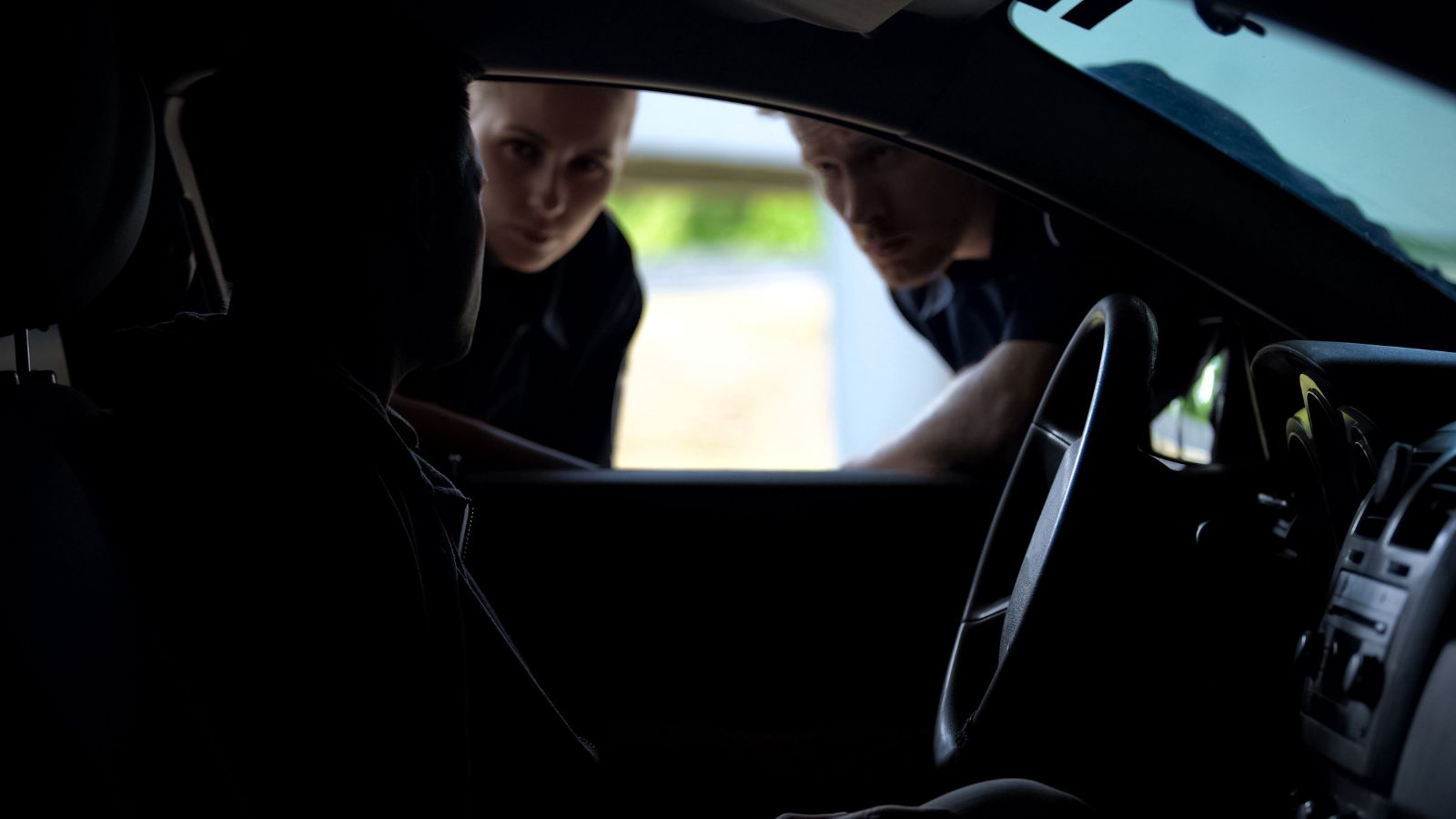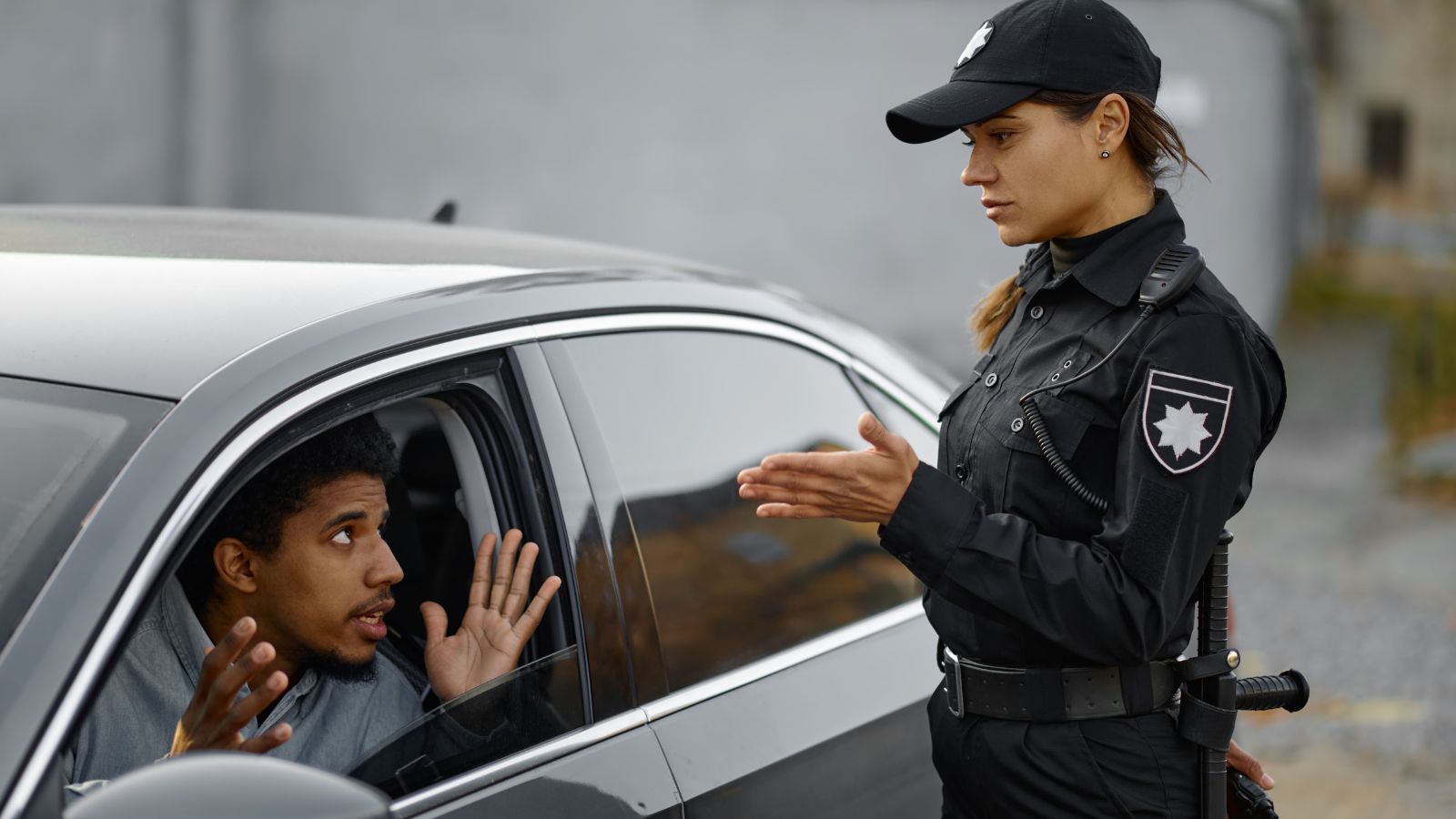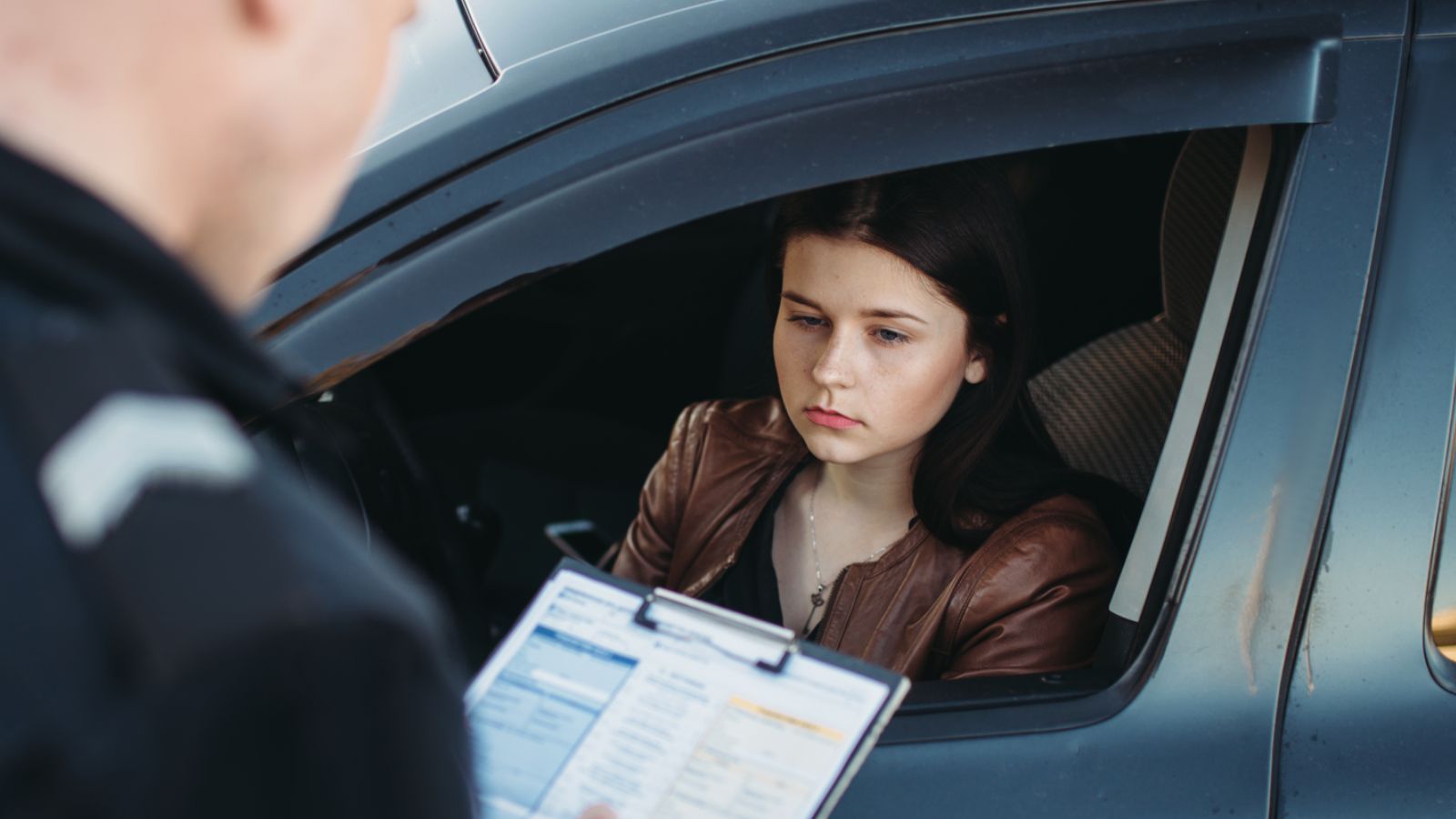We’ve all heard the popular phrase, “Be careful; anything you do will be used against you in the court of law.” Well, this isn’t an empty threat, but free legal advice you should heed. So that you don’t get yourself into trouble, we’ve compiled 19 things you shouldn’t say when pulled over by the cops.
“Why Did You Pull Me Over?”

The phrase “What did I do?” is a common, almost innate first reaction to being pulled over. You have to understand that the police can stop you for reasons known to them, and it’s best to immediately cooperate instead of sounding defensive. Follow up with the statement, “I didn’t do anything wrong,” and you sound like you’re hiding something already.
“I Don’t Have to Show You Anything.”

Requesting for your license and registration is the police’s typical first statement to you. In many states across the U.S., you are legally required to provide a driver’s license as well as insurance and vehicle registration documents. Know what your state law says before refusing to comply with the officer’s legitimate demands.
“But I Only…”

If you’re tested for a DUI and it comes out positive, or you’re told you drove above the limit, it’s best not to try to simmer down what you did. Saying you “only had little alcohol” or “only went a mile above” is literally confessing to committing an offense. To the officer, it sounds more like “Yes, I definitely did it.”
“I Don’t Have My License.”

First of all, don’t drive without your license, as RateForce reports that it can cost you between $500 and $10,000 for first-time offenses. If you do, however, never say you don’t have a license if the officer doesn’t ask. You’re only incriminating yourself unnecessarily.
“You Don’t Have to Do This.”

You may say this or any other statement that tries to water down the situation to keep the cop calm. However, some may interpret it as your own way to hide an inadequacy and will double down on their interrogation. Plus, it doesn’t get you out of an offense if you’re already caught anyway, so why bother?
“I Know My Rights.”

Claiming your rights is just plain argumentative, and, after some back and forth, you’re probably likely to get the cop upset. Yes, you know your rights, but the officer also has a reason for giving you a ticket or making an arrest. Any counterarguments you have should be put forth in court.
“Go Ahead With the Search.”

Unless the officer has a search warrant or an arrest warrant, don’t give the go-ahead for a search. By doing this, you’re willingly giving up your Fourth Amendment right against unreasonable searches, as seen with Congress. We aren’t saying to get in the way if the officer insists, but make the statement “I do not consent to being searched” loud and clear.
“Sorry.”

Even if you feel you did something wrong, never apologize to the officer. For one, it would prove futile in getting you out of trouble. Also, hearing the phrase “I’m sorry” will only make the officer curious about what you’re apologizing for or solidify his suspicions toward you.
“Don’t You Have Real Criminals to Catch?”

Make this statement, and the officer might just make you his own real criminal. Stating an officer has better things to do with his time comes off as hostile and signals you’re trying to pressure him to be hasty with it. You might just make the interaction longer than it was going to be.
Lies

An officer catches you in one lie, and you’re going to be in for an unpleasant ride. When you tell lies, the officer has no reason to trust what you say or even the documents you present as real. As Lewis & Laws say, you may even be guilty of perjury.
“I Have Connections”

Making statements with the intention of threatening the officer doesn’t get you out of trouble. Saying, “I can get you fired” or “Do you know who I am?” wouldn’t amount to anything if the officer is doing his job right. What it does instead is make the officer more diligent in proving what you did wrong.
“I Know Why You Pulled Me Over.”

Even if it’s as a joke, never admit to knowing why you’re being pulled over. Instead of calming the situation as you may have intended, you only substantiate the officer’s suspicions and even give a direct confession to an offense—even if the officer wasn’t aware of it. This will be used against you in court.
“To Hell With You”

Insulting the officer, whether with vulgar language or not, only means you want some trouble. And you best believe you’re also going to get it. Throwing insults aggravates an already tense atmosphere, and things can get out of hand quickly. Understand that officers are humans too, and some may react more emotionally than others.
“I Have a Firearm”

Just like it is for you, a pullover is also a nervy situation for police officers. They don’t know what to expect, and unnecessarily stating that you actually have something dangerous in your car intensifies the situation and can make every little movement of yours a threat.
“What You’re Doing Is Wrong”

If what the police officer is doing is wrong, you can oppose it in court. Saying this during the interaction on the road certainly doesn’t make the officer change his mind. Instead, you risk aggravating the officer because you suggest he’s purposely going against due process.
“I Did It Because…”

Making excuses for an offense doesn’t get you out of the offense. You’re only providing a confession that’ll be used against you, as well as the motif for the prosecution to justify why you did it. Any reason you have for opposing a ticket or arrest, save it for the courts.
“My Taxes Pay Your Wages.”

Now, you’re just coming off rude and condescending, and the officer may find a way to get back at you—legally, of course. That taxpayers pay their salaries isn’t new information to them, and there’s no possibility of this statement getting you out of an offense.
Saying More Than You Should

If you talk too much, you might just reveal something the officer has been waiting to hear all along. Never say more than you should. If you’re asked to provide your driver’s license and vehicle registration, you don’t even need to say anything. When an officer asks if you’ve had anything to drink, a simple, polite “no” will suffice.
Any Phrase After an Arrest

Once you’re arrested, you don’t need to say anything else other than request a lawyer and invoke your right to remain silent. You don’t even need to answer questions from the police officer. In fact, by stating your right to remain silent, the police officer must halt any questions directed at you. If not, he violates your Miranda rights, as FindLaw explains.
Read More: 17 Things Society Can No Longer Do Because Gen Z Said So

Gen Z, our digital-native, trendsetting generation, is making waves in the cultural sea, steering the ship of societal norms in fresh and unexpected directions. As they charter new territories, there are certain practices they’d rather we say goodbye to. Curious? Let’s take a look at 17 things the rest of us can no longer do because Gen Z said so.
17 Things Society Can No Longer Do Because Gen Z Said So
19 Big Mistakes People Make After Losing a Spouse

Losing a spouse is one of life’s most tragic experiences, and when we’re overwhelmed by grief, we might make some decisions that we’ll later regret. Here are 19 mistakes people make after losing their spouse.
19 Big Mistakes People Make After Losing a Spouse
20 Time-Honored Practices Our Grandparents Followed That We Should Bring Back

Our grandparents had a far simpler life. There was no such thing as social media. Instead, there was more walking and meals were always fresh and homemade. With so many things keeping us busy nowadays, sometimes life would seem much easier if we lived the way our grandparents did.
20 Time-Honored Practices Our Grandparents Followed That We Should Bring Back
19 Common Behaviors of Highly Intelligent People

Intelligent individuals often display a range of behaviors and qualities that set them apart from others. When exploring these characteristics, it’s crucial to comprehend that intelligence is a multifaceted attribute. Here are 19 essential behaviors and qualities frequently observed in highly intelligent people.
19 Common Behaviors of Highly Intelligent People
17 Things We Were Taught in High School That We Now Know Aren’t True

Well, this one may depend on when you went to high school, but for this millennial, these are the things we were taught in high school that have been proven not to be true. Personally, I still want to go back and correct every teacher who told me I wouldn’t always have a calculator in my pocket; the joke is on them.
17 Things We Were Taught in High School That We Now Know Aren’t True

